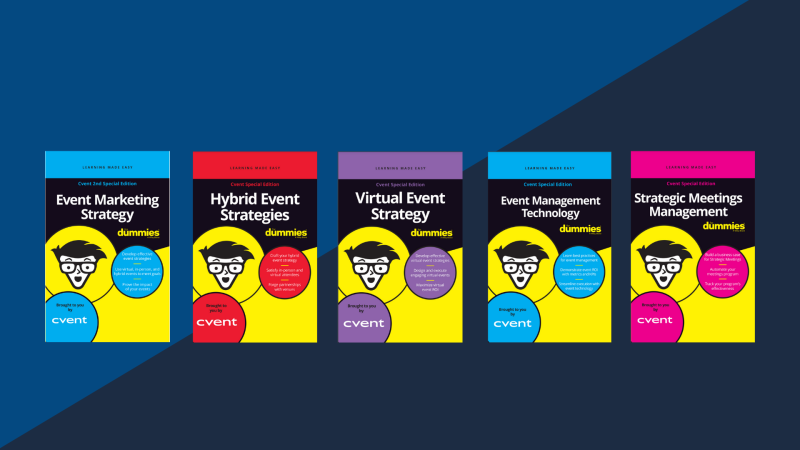Name badges are an essential part of conferences, larger meetings—and sometimes even smaller meetings. Corporate events and conferences benefit from name badges because they’re a good way to break the ice between attendees. Typically they’ll have some basic vital information—name tag essentials include the attendee’s name and the company where they’re employed.
But when it comes down to it, name badges are pretty standard. You might have a go-to vendor where you get the basic lanyard-and-plastic-badge, or it might even be a last minute item to check off your event planning list.
While it might not have a huge impact at first glance, conference name badges are often your attendee’s first interaction with your event and are a crucial part of their experience. They have to wear those things everywhere, after all.
When you’re looking for creative name tag ideas for your next conference and event, consider some of these cool ideas.
Add Additional/Interesting Info to Name Badges
The standard information to put on conference name badges is the attendee name and the company where they work. Occasionally they also have one or two pieces of contact information—such as a twitter handle, or short LinkedIn link. While this is good and important, consider that the name badge is often one of the first things attendees look at when starting a conversation with someone. I won’t specify how often I glance down at a badge to make sure I’m getting their name right, and ask about their work at their company.
With this in mind, consider changing it up by adding additional or alternative information that might be helpful to attendees as they are networking.
The best way to gather this information is through the registration form, or by sending out a pre-event survey closer to the day of the event. A single tidbit of extra information—like the attendee’s favourite movie, their most used industry keyword, or pet peeve buzzword—can help spark more meaningful conversations.
High Tech Name Tags for Attendee Tracking
While a “Hello, My Name Is” sticker does suffice, it’s not always the most classy or professional looking method.
For times when lead generation is a factor, high tech conference name badges are the obvious choice. RFID, barcodes, and QR codes have been used for years in name badges because they allow exhibitors to easily collect names, emails, and pertinent information. It’s very common nowadays to use conference name badges as lead generation, simply by scanning the code on each badge.
In addition, high tech name tags provide digital footprints that a planner can use to track attendee behaviour. By using an event app or other dedicated technology, conference name badges create an additional layer of information. Planners can track which booths are most visited at an exhibition, for example, or help sponsors achieve better visibility by looking and analytics for what areas of the event is most frequented by attendees.
The Nameless Conference Name Badge
When the purpose of your conference name badge isn’t primarily to be a name badge—for example, at a small meeting where everyone knows one another, or a conference where it’s more helpful to separate one group of attendees from another—a non-traditional conference ‘badge’ can be more useful.
Consider using items or objects that can sort attendees at a glance—colour coding is especially helpful, and can help attendees find and connect with groups of interest. For example, replace the ‘badge’ portion with a lightweight, portable, and wearable charger, which you can colour-code to visually separate groups of attendees while still being very useful for attendees.
As a less expensive alternative, at a local marketing conference, planners allowed attendees to select different coloured pins that could be added to lanyards given out at registration. These pins were colour-coded and had words to mark whether the attendee was a freelancer, worked in-house at an organisation, or at an agency. This helped attendees pinpoint the type of marketer they were working with, and also allowed peers to quickly connect and network.
Or, dispensing with the lanyards altogether, consider getting creative with conference name badges and using wrist bands instead. They are equally useful for attendee identification, can still be used with barcodes or RFID, and are convenient and difficult to lose.
The Essentials of Name Badge Design
If you do decide to use the traditional conference name badge, keep in mind these essential points.
- The font needs to be clear and easy to read
- Keep the design simple
- Don’t overcrowd it with information
That’s it! There are plenty of online resources with examples of beautifully designed name badges. But whatever you decide, remember that the design shouldn’t overshadow the tag’s usefulness. Name badges can have an impact on attendee experience—the back is a great place to put condensed, helpful resources that attendees can quickly reference—so think more about what information should be on it, and in what way, rather than what it should look like.
Get Creative with Conference Name Tags
Ultimately, what your name tag looks like is less important than what it does for an attendee.
Reconsider what is ‘vital’ information for your conference badges. Name and company are necessary—or are they? Consider alternatives that take attendee objectives into account. Colour-coded badges or items can be useful for sorting types of attendees, both for the organiser and the attendees themselves, while high-tech badges can be helpful for your sponsors and exhibitors.
Consider the utility of your conference badges before deciding what type to use. They’re an unlikely, but ultimately very useful, aspect of your attendees’ experience.





